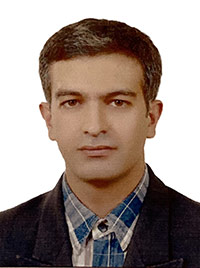UNB Chemical Engineering Grad Student Wins National Research Award
Author: UNB Engineering
Posted on Jun 9, 2025
Category: Student Spotlight , Chemical

Masoud Haeri Nejad, a PhD graduate in Chemical Engineering from the University of New Brunswick, has become the first student from Atlantic Canada to win the prestigious Best Graduate Student Paper Award from the Canadian Society for Chemical Engineering.
His groundbreaking research explores faster, more efficient ways to identify materials that can remove harmful gases from the air, and research with applications from hospitals to chemical protection suits.
“I was really delighted to learn that for the first time since its initiation back in 2013, this award has gone to a graduate student from Atlantic Canada—and it happens to be UNB,” Masoud says.
His work focuses on improving materials known as ‘adsorbents’, which capture chemical pollutants from the air. These pollutants, although often present in small amounts, can be harmful, especially in enclosed spaces.
“I am trying to search for more efficient materials through a combination of fast experimental techniques and computer-based molecular simulation algorithms,” he explains. “The latter aspect, which was the topic of my winning paper, helps to reduce the number of required experiments—especially when I need to choose from a large set of promising materials.”
Masoud’s academic journey began in applied chemistry, but it was the environmental focus of chemical engineering, especially energy efficiency and sustainability, that ultimately drew him to research at UNB.
“We cannot do without technology,” he says, “but we can optimize it by selecting less energy-intensive and more environmentally friendly paths.”
His doctoral research looked at how to improve air quality in hospital operating rooms, specifically by capturing leftover anesthetic gases that can leak into the air and pose health risks to surgical staff.
“There are many possible adsorbents that could separate these agents out of the air flow, but that means doing many screening experiments. Molecular simulation helps accelerate this by predicting the performance of each material.”
A key experimental technique Masoud used was the ZLC, Zero-Length Column Chromatography, a rapid testing method that requires only tiny amounts of sample material.
“Because of the small sample size requirement and fast analysis time of ZLC, I was able to do adsorbent characterization in a much faster and inexpensive way for a large set of candidate samples,” he says.
In a full-circle moment, ZLC was originally developed at UNB in the late 1980s as part of his doctoral supervisor’s own research.
Now working as a postdoctoral research associate with Calian Ltd. and the Royal Military College of Canada, Masoud continues to build on what he started at UNB.
He’s designing more efficient adsorbents with potential application to gas mask filters and protective textiles used in chemical and biological defense.
“Using the simulation skills developed at UNB, I’m helping to reduce the number of risky lab experiments by reliably predicting their likely outcome,” he says.
Beyond research, Masoud also taught undergraduate courses like Engineering Thermodynamics while completing his PhD. “It helps to improve interpersonal skills such as leadership and mentorship. These are the skills I believe I can apply in other working contexts too.”
His advice for future graduate students? Stay adaptable, persistent, and choose a research path that truly resonates with you. “Research at PhD level is a full-time endeavor,” he says. “It requires time-management, perseverance, and flexibility to reach the finish line.”
Reflecting on his journey, he adds, “I quote the following from the famous American industrialist Henry Ford which I used in the title page of my PhD dissertation: He said whether you think you can or you think you can’t, you are always right.”
